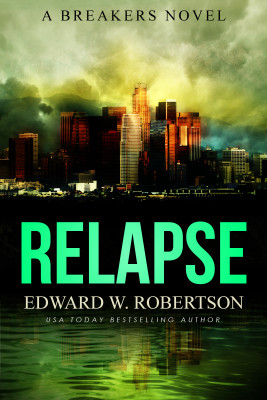Yesterday, Joe Konrath and Blake Crouch put up an interesting post on Amazon’s Select program. The gist is that, with the emergence of viable alternative ebook stores besides Amazon, staying exclusive to Amazon by participating in the Select program is no longer worth it.
I’d qualify that a bit: staying exclusive to Amazon is no longer worth it for bestselling authors J.A. Konrath and Blake Crouch.
I’m sympathetic to their message. For 98% of participants, Select is no longer as powerful as it used to be. It doesn’t rack up the sales like it did just a few months back. Meanwhile, over the last couple years, Amazon’s share of the ebook market has decreased from around 90% to 60% or less. Still huge, in other words, but the other stores are no longer irrelevant. To put it in perspective, let’s look at a completely hypothetical example. Say you’ve got a book that will earn $300 through Amazon each month. Back when Amazon had 90% of the market, you’d only expect to earn another $33 by distributing to all the other stores. These days, having it available everywhere would make you another $200 per month. In an environment where gaining the perks of Select only means giving up 10% of the market, it’s a pretty easy call. When that exclusivity means giving up 40%, it’s a completely different story.
Blake illustrates this by his experiments with Barnes & Noble and Kobo. By enrolling in the Nook First program with his latest book, Eerie, he was able to sell 1500 books in a month of exclusivity–pretty good. Far better than he would have done for the Nook without the advertising and placement B&N gives its Nook First authors.
With another book, Kobo offered him a real promotional flurry–“email blasts, coupons, and prominent placement on their landing pages”. He didn’t have to go exclusive with them, and he was still able to hit the top 10 on Kobo. That month, his Kobo earnings on that title nearly matched what it made on Amazon.
This sounds really good. Much better than the dwindling returns of Amazon Select. But then again, of course it sounds good: this is Blake Crouch we’re talking about.
Blake Crouch can get into Nook First. Blake Crouch can get a massive advertising push on Kobo. Can you? Without those resources at your disposal, how do you really think you’ll do on the other stores? Better than you’d do than if you stayed in Select?
This doesn’t mean I think Select is still the end-all and be-all in the indie world. Kobo is very interesting, and some people do well on B&N. Despite my recent success with it, I’m growing increasingly disenchanted with Select myself; a week back, I scheduled a two-day free run for Breakers that had a good shot restoring its sales, but the promo didn’t begin until 2 AM on the second day. I emailed, called, and emailed Amazon again to reschedule my lost free day for the following day, but they didn’t respond until it was too late. The giveaway went decently, but without that second day, it didn’t do nearly as well as it would have. I gave away some 5600 books; with another day, I probably would have done 8-9K. In my position, that could have been huge. Amazon’s slow customer service cost me hundreds, possibly thousands of dollars.
Guess who’s pretty interested in Kobo and iTunes right now?
But I’m still not pulling everything from Select right away. I have a plan for one of my books that hinges on what Select offers. Select can still help that book better than anything I’m aware of through iTunes, B&N, and Kobo put together.
We’re not all Blake Crouch. I’d like to be Blake Crouch. It would be much easier to make these kinds of decisions when the other stores are willing to put so much marketing muscle at your disposal. In the interest of full disclosure, the only reason I’m leaning toward pulling one of my books from Select is I’ve had an offer–at a much, much smaller level–that would provide it with some visibility there. That, combined with my growing disenchantment with Select, makes me inclined to experiment.
The bottom line is very much a matter of common sense: if Select isn’t getting you much in the way of results, you should totally try the other stores and see what happens. Experimentation is key. You have to fail and fail and fail until you find what works. But if Select is helping, even modestly, or you have a strategy to make it start working for you, then you should probably stay exclusive for now.
Blake gets at that in their post, actually. He concludes by saying that he doesn’t have definitive answers, that the real answer is to experiment and adapt–but Joe pushes harder against Select. He no longer thinks exclusivity is worth it.
Well, maybe not for him. But it still might be for you.









Leave a Reply